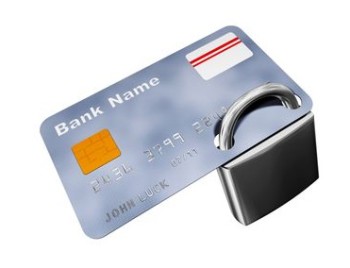Phoney fraud alerts
 What is a phoney fraud alert?
What is a phoney fraud alert?
A phoney fraud alert is similar to a phishing scam. It can come in the form of an email or a phone call claiming to be from your bank or financial institution. The scammer will usually tell you that your credit card or account has been cancelled because it was involved in criminal activity, or because they suspect your card or details have been stolen. This is a trick to get you to given them your account details.
You will be told that a suspicious transaction has recently occurred on your account, perhaps a large purchase in a foreign country. You will be told that if you did not authorise the transaction, you need to take immediate action as your credit card details have been stolen.
The scammer will ask you to confirm your credit card or account details so the ‘bank’ can ‘investigate’. If you receive an email, it may ask you to visit a website to confirm your credit card details or to find out more information on the supposed ‘fraud’ to your account.
In some variations of this scam, the scammer may already have your credit card number (that they have stolen previously), and may even quote this to you. They will then ask you to confirm that you are the cardholder by telling them the 3 or 4 digit security number printed on the card. If the scammers have this number, they can use your card to buy things over the internet or phone.
These phoney fraud investigations are used to steal your banking details so the scammers can use your account. They work by lowering your guard with the phoney fraud alert. They hope that you panic and do what they suggest to fix the ‘problem’. They are particularly tricky to spot because real banks and credit unions often do contact people if there has been suspicious activity on their account.
If you receive a call from someone who claims to be from your bank and says your account been defrauded you should ask for their name and number, and say you will call them back. Check the number they give you against the number you normally contact your bank with.
A legitimate bank or financial institution will NEVER email you asking you to follow a link or asking you for personal details. If you believe the email is genuine, telephone your bank or financial institution to let them know about the email and ask their advice. Do NOT call using any telephone number listed in the email— use a number that appears on your statement or card, or in the phone book. Many banks and financial institutions now have specialised internet security staff who can help you.
Warning signs
-
You receive an email or a phone call from somebody saying they are from your bank, asking you about recent activity on your credit card or account.
-
You are asked to confirm your credit card and bank account details by return email, visiting a website or over the phone.
-
The caller or the email claims that there has been fraudulent activity found on your bank account, or that your card has been cancelled.
-
You may be advised to contact a fake fraud investigations body, and discouraged from contacting your bank or credit union.
Protect yourself from phoney fraud alerts
-
NEVER send money, or give credit card or online account details to anyone you do not know and trust.
-
Do not give out your personal, credit card or online account details over the phone unless you made the call and the phone number came from a trusted source.
-
Do not open suspicious or unsolicited emails (spam): delete them.
-
Do not click on any links in a spam email, or open any files attached to them.
-
Never call a telephone number that you see in a spam email.
-
NEVER reply to a spam email (even to unsubscribe).
-
If you want to access an internet account website, use a bookmarked link or type the address in yourself: NEVER follow a link in an email.
-
Never enter your personal, credit card or online account information on a website that you are not certain is genuine.
-
Never send your personal, credit card or online account details through an email.
-
Order a your credit report every year to make sure no one is using your name to borrow money or run up debts.
You should NEVER give out your personal or bank account details to somebody you don’t know and trust. Don’t be tricked by an email that looks legitimate or appears to link to a genuine website. The best defence is to delete the email before you even open it and then contact your bank.
If you receive a phone call that you think may be genuine, you should not ignore the possibility that there actually has been some fraud with your bank account or credit card. Ask the caller for details, then hang up and call your bank or credit union to tell them what has happened. Make sure the phone number you use is genuine: use a number that appears on your statement or card, or in the phone book..
If you think you have been targeted by a phoney fraud alert, you should contact your bank or credit union to let them know. You can also report a scam to WA ScamNet.
Tell your friends and family about the scam so they know what to be on the look out for if they are targeted.



